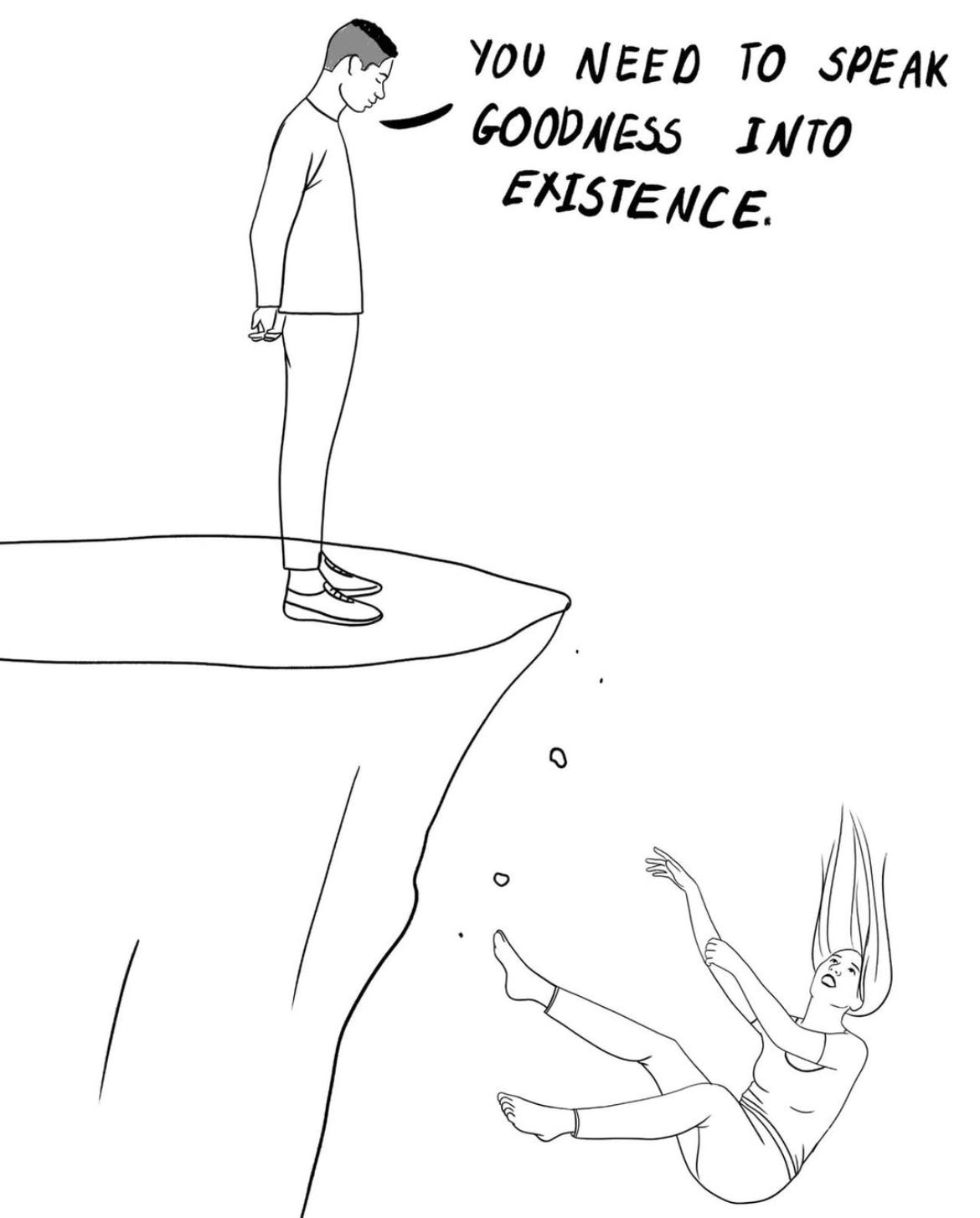Hi Friends,
In our pursuit of peace and transcendence, it’s easy to unknowingly trade authentic connection for a polished illusion of "spiritual growth." Practices like meditation, prayer, or yoga promise healing, but when wielded to avoid or suppress our emotions, they can lead us down the path of spiritual bypassing.
Coined by psychotherapist John Welwood, spiritual bypassing occurs when we use spiritual practices to sidestep our emotional work, shielding ourselves from uncomfortable truths. It’s a subtle defense mechanism that can look "holier" than others, but at its core, it disconnects us from the fullness of our messy, beautiful human experience.
For fawners—those of us conditioned to prioritize others at the expense of our own needs—this tendency can feel especially tempting. After all, what’s more “noble” than abandoning our feelings for a higher purpose? But in truth, it’s just another layer of self-abandonment, cloaked in the language of spirituality.
The Trap of Spiritual Perfectionism
Many of us have been taught, implicitly or explicitly, that spirituality should free us from the messiness of being human. We’re told that with the “right” mantra, the “perfect” practice, or enough effort, we’ll transcend pain, discomfort, and even ourselves. But this chase for perfection is a dead end.
We can’t out-think our brains, out-run our feet, or out-pray our feelings. And why would we want to? Feelings, even the uncomfortable ones, are our teachers. They ground us in our reality and help us navigate life’s complexities. To bypass them is to lose touch with the very truths that make us whole.
What We Really Need Isn’t Intensity—It’s Consistency
James Clear writes in Atomic Habits that people often believe they need intensity to change their lives. They want a single, life-altering breakthrough, but what they really need is consistency: small, daily actions that, over time, create profound transformation.
This is the antidote to spiritual bypassing. Instead of chasing the next "perfect" practice to fix us, we can focus on showing up, day after day, for the quiet, steady work of being human.
This could look like sitting with a difficult emotion without trying to solve it. Or choosing a practice—not because it promises transcendence, but because it anchors you in the here and now.
How to Recognize and Reclaim
If you’re wondering whether your spiritual practice is helping you connect—or distracting you from what needs attention—here are some questions to consider:
Am I using this practice to avoid something difficult? Instead of praying harder or meditating longer, pause and ask yourself: What am I feeling right now? What am I afraid to face?
Do I believe that feeling certain emotions makes me less “spiritual”? Emotions like anger, sadness, or frustration aren’t enemies. They’re signals. Can you sit with them, without judgment, and listen to what they’re telling you?
Is someone encouraging me to bypass my feelings? Beware of phrases like, “If only you were more spiritual, you’d let it go.” True spiritual growth is never about denial—it’s about deeper connection and self-awareness.
Moving Forward with Intention
True spirituality isn’t about avoiding pain; it’s about embracing the full spectrum of life with grace and courage. Seeking spiritual practices should invite deeper self-awareness, not escape. It’s all about meeting yourself where you are—messy, imperfect, human—and learning to hold space for all that you feel.
As you step into spring, I invite you to reflect: Where might I be bypassing my truth for the sake of comfort or appearances? How can I use my spiritual practice as a tool for connection, not avoidance?
Let’s honor our humanity together, one step—and one feeling—at a time.
With warmth,
Ingrid







Point for everyone here.
Great to help the men and women who are caught in this terrible circle,But I have not heard a lot about the husband/ Wife of a Fawner who has to go through this horrible action of seeing a partner Man/Women throwing themselves at another without thinking of there partners
In two days time I celebrate one year of marriage. I am now devastated because when my wife made her vows to me on the 28th of Feb,,she also made them to our best man whom had a partner and had only met for the first time and worst of all
The best man's wife had it all on camera and walked away after the ceremony
So while I back my one year old wife 100% if any one says to me that part of this Fawning is not Sensual to the receiver I will say to any reader. Fuck off.
I've seen my one year old wife ,,now seeing a psychiatrist,, chasing after a man she used to fawn on the market square ..being 400yards away and yet running up to him and doing everything to empress him ..so to the writers..where is the FEAR here .
James Broderick
jimbro874@gmail.com
My 88-year old mom is not a fawner, I *think* she’s a fighter, but boy howdy does she spiritually bypass, actually arguing with everyone around exactly how to pray and what to believe.